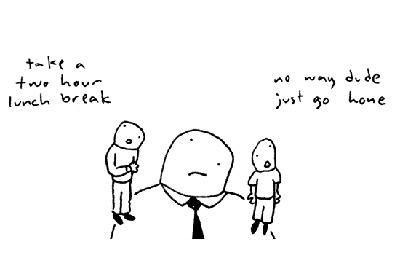The next time you’re juggling options – which friend to see, which house to buy, which career to pursue – consider the action of Xiang Yu, a Chinese general who took his troops across the Yangtze River into enemy territory and performed an experiment in decision making. He crushed his troops’ cooking pots and burned their ships.
He explained this was to focus them on moving forward – a motivational speech not appreciated by many of the soldiers watching their retreat option go up in flames! But General Xiang has been vindicated, both on the battlefield and in social science research. He was a rare exception, a warrior who conquered by being unpredictably rational.
Are you ‘deciding’ or ‘choosing’?
Whether you’re thinking about which school to send your children to, where to go on holiday, or buying office supplies, every day you opt for one thing over another. Sometimes you’re choosing. Sometimes you’re deciding. Doing one when the other is called for can get in your way.
Consider what the words mean:
- A choice is a selection from a number or variety of options.
- A decision is reaching a conclusion or passing judgment on an issue.
When we choose, it’s like picking an item from a menu – it’s a proactive, voluntary act, by which you close the doors on the other options yourself and consciously ‘move on’. A decision cuts off other options – by definition a turning point.
If you take a decision as a reaction to a consideration of pros and cons or external pressures (such as time, other people’s feelings etc) without consciously making a choice, you can often feel railroaded. Conversely, if you try to make a choice without then proceeding to cut off the other options and forget about them – a decision – you can be forever haunted by the ‘roads not travelled’, or spend your life shilly-shallying – sitting on the fence – waiting for the answer.
Is the difference stealing your focus and your time?
Decisions and choices build character, and are what makes your experience and your business success. Two mistakes steal time and focus and generate stress:
- Do you angst over every choice as if it’s a life-changing decision? Take a look at what you’re investing – time, energy, stress – and whether it’s worth it.
- Do you avoid making choices and moving on? Take a look at the options you’re holding onto and how they’re holding you in place.
The price of keeping your options open
Most people find making a choice painful. Dr Dan Ariely, a professor of behavioural economics, has written a book, Predictably Irrational, an entertaining look at human foibles like the penchant for keeping too many options open. In a series of experiments involving a game that eliminated the excuses we usually have for refusing to let go, hundreds of people could not bear to let their options vanish, even though it was obviously a dumb strategy.
In the real world, we usually seem to tell ourselves that it’s good to keep options open.
You don’t even know how a camera’s ‘burst-mode flash’ works, but you pay for the extra feature just in case. You no longer have anything in common with someone who keeps calling you, but you hate to just end the relationship. Your child is exhausted from after-school soccer, ballet and Spanish lessons, but you won’t let her drop anything; the skills could come in handy!
We experience closing a door on an option as a loss, which it seems we are willing to pay a price to avoid. But in life, the costs of not closing that door are equally obvious – wasted time, missed opportunities. If you are afraid to drop a project at the office, you pay for it at home.
Dr Ariely does not pretend that he is above this problem himself. When he was trying to decide between job offers from MIT and Stanford, it was clear within a week or two that he and his family would be more or less equally happy in either place. But he dragged out the process for months because he became so obsessed with weighing the options.
So what can you do about it? `
- Make use of social checks on sitting on the fence. Marriage is an example: we promise ourselves and announce to others that we’re not keeping our options open. Close the doors. Make public commitments. Engage a coach or personal trainer.
- Make a conscious effort to cancel projects and give away ideas to colleagues.
- Resign from committees, prune Christmas card lists, rethink hobbies – remember the lessons of door closers like Xiang Yu.
- Recognise that you always have a choice. Often poor decision-making comes when you think you don’t have any other option. When you realise that you always have choices, you can consider them and the consequences they bring before moving forward.
If General Xiang’s tactics seem too crude, consider another role model, Rhett Butler, for his supreme moment of unpredictable rationality at the end of ‘Gone With the Wind’. Scarlett O’Hara, like the rest of us, can’t bear the pain of giving up an option, but Rhett recognises the marriage’s futility and closes the door with astonishing finality: frankly, my dear, he doesn’t give a damn!
Let us know what you think below or email us at info@leaderslab.co.uk.
